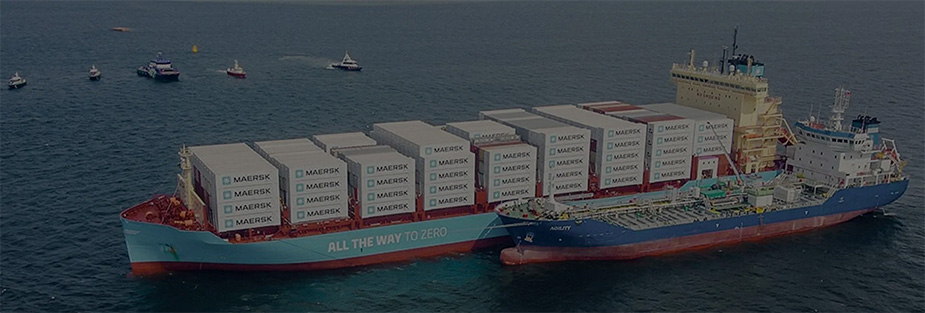
Equinor and Maersk partnership secures green fuel
Equinor and Maersk have entered into an agreement that ensures a steady provision of eco-friendly methanol for Maersk’s cutting-edge feeder vessel. This arrangement covers the vessel’s fuel supply from September 2023 through the first half of 2024.
The agreement guarantees a continuous provision of environmentally friendly methanol for the ship from the moment it commences its voyage route from Northern Europe to the Baltic Sea. This sustainable methanol will be supplied in Rotterdam.
“We are delighted to collaborate with Maersk in the effort to supply more eco-friendly fuels to the maritime sector,” expressed Alex Grant, Senior Vice President for Equinor’s liquid commodity segment. “With our established presence in the European methanol market via our production facility in Tjeldbergodden, we aspire to become a leading supplier of green methanol for marine fuel.”
Biomethanol is derived from biogas generated from manure. This biogas is first upgraded into biomethane, which is then introduced into the existing gas grid. The production of methanol occurs within this grid, maintaining a mass-balance approach. To ensure transparency and prevent double-claims, the established European biogas certificate system is utilized to track the attributes of biomethane and its transformation into biomethanol. This approach allows for the production of eco-friendly methanol within pre-existing facilities and infrastructure, facilitating a rapid entry into the market.
This method not only promotes a more environmentally friendly gas grid but also mitigates the release of harmful methane emissions that would otherwise occur from untreated manure feedstock. The resulting biomethanol is certified in compliance with the ISCC EU standards as outlined in the EU Renewable Energy Directive.
Maersk defines “green fuels” as fuels characterized by significantly reduced greenhouse gas (GHG) emissions throughout their lifecycle compared to conventional fossil fuels. The extent of GHG reduction varies among different green fuels, with “low” indicating a 65-80% reduction in GHG emissions compared to fossil fuels, and “very low” signifying an 80-95% reduction in GHG emissions relative to fossil fuels.
Maersk has set a bold goal of achieving net zero greenhouse gas emissions by 2040 and intends to have at least 25% of its ocean cargo transported using eco-friendly fuels by 2030. The introduction of the 2,100 TEU feeder vessel marks a significant milestone in their ongoing commitment to eventually transitioning their entire fleet to run exclusively on sustainable fuels. Maersk has already placed orders for 24 more methanol vessels, which are scheduled for delivery between 2024 and 2027, aligning with their policy to exclusively invest in new vessels that offer green fuel capabilities.
Plan Stress-free Move with Top Moving Company in UAE - ISS Relocations

Moving Company - Recent Blog
Stay informed and prepared for your next move with our latest blogs on moving services in the UAE. From expert packing tips to international relocation guides, ISS Relocations brings you up-to-date insights to make your moving experience smoother, safer, and stress-free.










